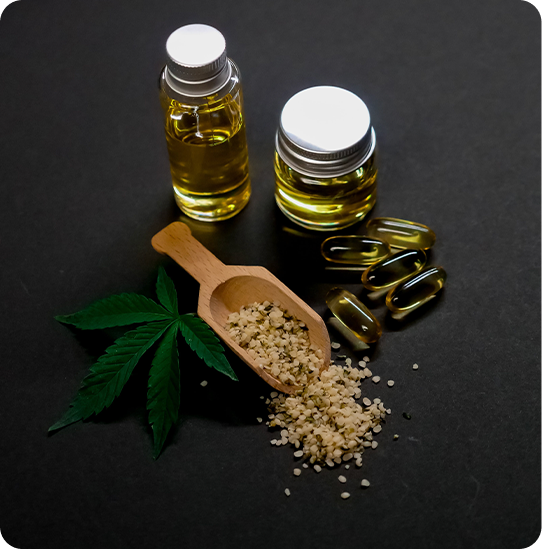Gut Check: Natural Ways to Support Your Microbiome

Let’s Talk Gut Health (Without Getting Gross About It)
Your gut is kind of a big deal. It’s not just where your food goes, it’s where so much of your wellness begins. Immunity, mood, energy, even skin clarity? Yep, all tied to your gut microbiome. That’s the complex world of bacteria, fungi, and microbes hanging out in your digestive tract, working hard behind the scenes to keep things running smoothly.
But modern life isn’t always gut-friendly. Stress, processed foods, antibiotics, sugar overload, and poor sleep habits can throw your internal balance off, leaving you bloated, sluggish, or just feeling…off. The good news? There are simple, natural ways to support your microbiome and feel more like yourself again.
What Is the Microbiome, Exactly?
Think of your microbiome as a microscopic ecosystem living in your gut. It’s made up of trillions of microbes; some helpful, some not-so-helpful. When the good guys outnumber the bad, your body functions at its best. Digestion improves, inflammation stays in check, your immune system gets stronger, and even your brain feels clearer.
Your gut and brain are directly connected through the gut-brain axis, which is why gut health is so tied to mental wellness. Ever had “butterflies” before a big meeting or felt nauseous from stress? That’s your gut-brain connection in action.
Signs Your Microbiome Might Need Some Love
You don’t need to get a lab test to know your gut’s out of sync. Common signs include bloating, constipation, gas, food sensitivities, low energy, frequent illness, brain fog, and even mood swings. Basically, if your body is throwing off weird signals and you can’t quite put your finger on why, your gut might be the culprit.
Natural Ways to Support a Healthy Gut
First things first: food is your foundation. A diverse, fiber-rich diet is one of the best ways to nurture your microbiome. Think colorful fruits and veggies, leafy greens, nuts, seeds, and whole grains. These feed the good bacteria and help them thrive. It’s less about restriction and more about variety. Your microbes love options.
Fermented foods are another powerhouse. Sauerkraut, kimchi, yogurt with live cultures, kefir, miso, and yes, even kombucha (if that’s your thing) introduce beneficial bacteria into your system. These natural probiotics help repopulate and balance your gut flora. Just be mindful of added sugars or overly processed versions - go for the real stuff whenever you can.
Speaking of probiotics, supplements can help fill in the gaps, especially if your diet has been less than ideal or you’ve recently taken antibiotics. Look for high-quality strains like Lactobacillus and Bifidobacterium, and make sure the brand you choose is transparent about CFUs (colony-forming units) and shelf stability.
Then there are prebiotics - basically, food for your good bacteria. Foods like garlic, onions, leeks, asparagus, bananas, and oats are all rich in prebiotic fibers that help the probiotics do their job better. Pairing prebiotics with probiotics is a win-win for gut support.
Mushrooms also deserve a shoutout. Functional fungi like turkey tail and lion’s mane have prebiotic effects and support the immune system through gut modulation. They’re a quiet powerhouse in our blends for a reason - they work.
Lifestyle Habits That Make a Difference
It’s not just what you eat, it’s how you live. Chronic stress is a known microbiome disruptor. When you’re in fight-or-flight mode all the time, digestion slows, inflammation ramps up, and your gut bacteria suffer. Daily rituals like meditation, breathwork, gentle movement, or simply doing less can help restore that balance.
Sleep is another major player. Aim for 7–9 hours of quality rest each night to support your body’s natural repair cycles, including the gut. Your microbiome actually follows a circadian rhythm, and poor sleep can throw it off just like it throws off your mood and focus.
Hydration matters too. Water helps move things along and keeps the lining of your gut healthy. Add a little lemon or sea salt for electrolyte support and a gentle digestive boost.
And let’s not forget about movement. Regular exercise - not just hardcore workouts, but walking, stretching, dancing, whatever you enjoy - can increase microbial diversity and reduce inflammation. Think of it as a workout for your gut, not just your muscles.
What to Skip (or Cut Back On)
While you don’t need to go full monk mode, a few common gut offenders are worth limiting. Over-processed foods, artificial sweeteners, excess alcohol, and chronic stress can all throw your microbiome into chaos. That doesn’t mean never enjoying a cocktail or dessert, it’s about being mindful of how often, and how your body responds.
Antibiotics are lifesavers when needed, but they wipe out the good bacteria along with the bad. If you have to take them, follow up with a solid probiotic routine and lots of gut-friendly foods to rebuild.
Give It Time and Listen to Your Gut
Supporting your microbiome is a long game. Changes won’t happen overnight, but with consistency, you’ll likely start to feel clearer, lighter, and more resilient. Less bloating, better moods, stronger immunity - that’s your gut saying thanks.
And because every microbiome is unique, it’s all about tuning in. Notice how different foods and routines make you feel. Track changes if that helps. The more in sync you are with your gut, the more power you have to support your whole system.
Your Gut’s Got Goals - Let’s Support Them
Here’s the truth: your gut isn’t asking for perfection. It’s asking for consistency, kindness, and a little less chaos. When you support your microbiome with natural, gut-friendly foods and habits, the ripple effects are massive. Better energy. Clearer skin. Calmer mood. Less stress. It’s all connected.
So whether you’re having a mushroom gummy with your morning coffee, sipping bone broth in the evening, or just choosing whole foods more often than not, you’re giving your body the backup it needs to thrive.
Your gut already knows what to do. Let’s just help it do its thing.

